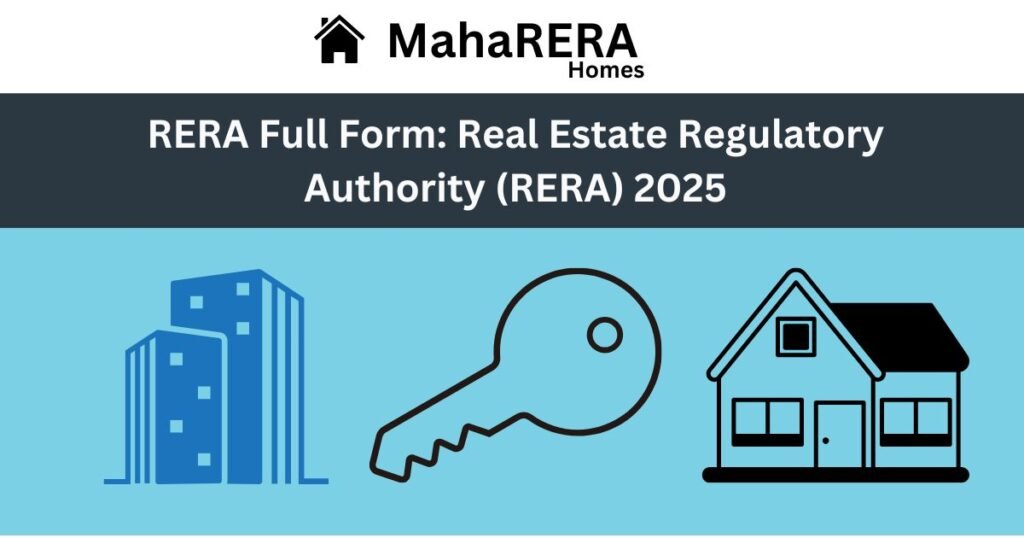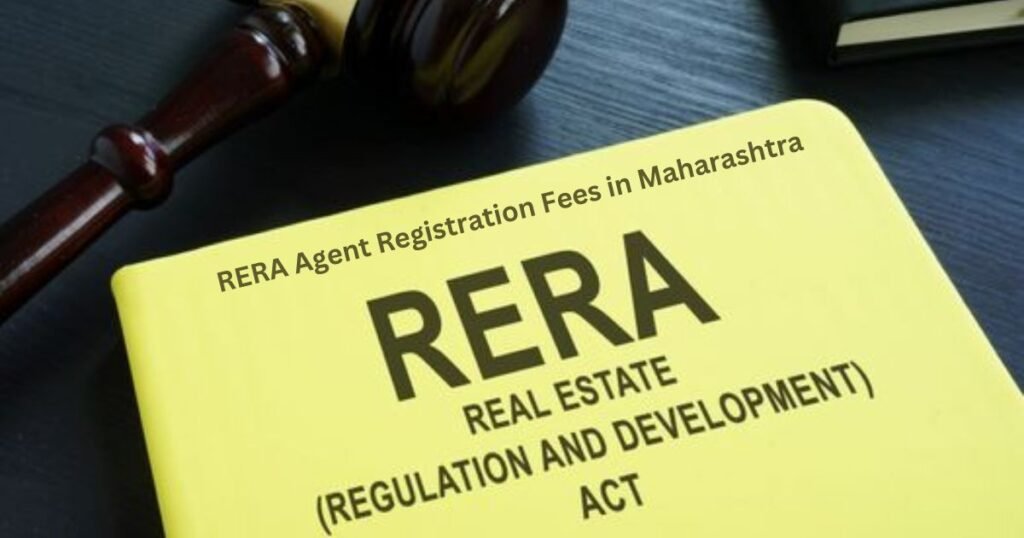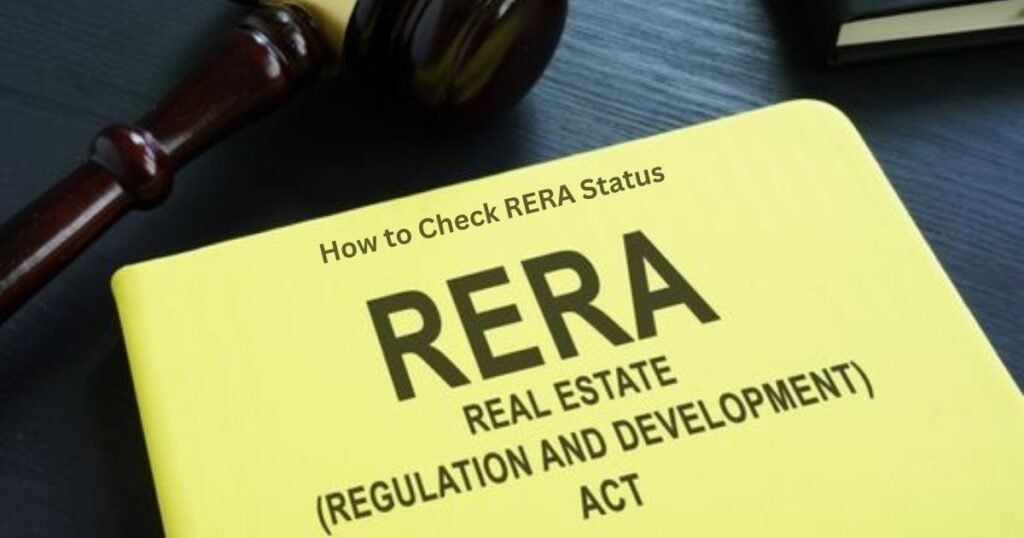RERA Full Form: Real Estate Regulatory Authority (RERA) was established under the Real Estate (Regulation and Development) Act, 2016, to bring transparency, accountability, and efficiency to India’s real estate sector. This comprehensive guide delves into the intricacies of RERA, its objectives, key provisions, benefits, and its impact on various stakeholders.

What is RERA?
RERA, or Real Estate Regulatory Authority, was created by the Government of India to bring transparency and discipline in the real estate sector. Its main objective is to regulate real estate deals and ensure that builders deliver their projects on time and as per promises. Introduced through the RERA Act 2016, this framework aims to tackle common problems such as delayed projects, unclear information, and unfair practices that have become a never-ending problem for homebuyers. By setting clear guidelines and holding builders accountable, RERA wants to protect the interests of homebuyers and build trust in the real estate market. So, this is what RERA means – getting a house on time, without any tension!
Also Read: How to Download MAHARERA Exam Certificate in 2025
Why was RERA introduced?
Before the advent of RERA, the real estate industry was facing many problems such as delays in projects, lack of transparency, and developers escaping their own responsibility. Homebuyers found it difficult to get accurate and reliable information about ongoing projects, which put them at risk. The full form of RERA itself tells its main objective: to bring trust and integrity in the real estate market. Through the strict rules of RERA, it is to ensure that developers fulfill their promises, deliver projects on time, and buyers get the confidence they need while investing in property.
Objectives of RERA
RERA aims to:
- Protect Homebuyers: Safeguard the interests of buyers by ensuring timely delivery and quality of projects.
- Enhance Transparency: Mandate clear disclosures about project details, approvals, and timelines.
- Promote Accountability: Hold builders and developers accountable for their commitments.
- Facilitate Dispute Resolution: Provide a structured mechanism for speedy redressal of grievances.
Key Provisions of the RERA Act
The RERA Act encompasses several critical provisions designed to regulate the real estate sector:
1. Mandatory Registration
All real estate projects exceeding 500 square meters or involving more than eight apartments must register with RERA before advertising or selling. This ensures that only compliant projects are marketed to the public.
2. Project Transparency
Developers are required to provide detailed information, including:
- Project layout and sanctioned plans.
- Schedule of project completion.
- Status of statutory approvals.
- Names and details of contractors and architects.
This transparency empowers buyers to make informed decisions.
3. Escrow Account Maintenance
To prevent fund diversion, developers must deposit 70% of the project funds received from buyers into a dedicated escrow account. These funds are exclusively for land and construction expenses, ensuring financial discipline.
4. Adherence to Project Timelines
Developers are obligated to complete projects within the stipulated timelines. Failure to do so entitles buyers to compensation or a full refund, fostering trust in the developer community.
5. Advance Payment Restrictions
The Act restricts developers from accepting more than 10% of the property’s cost as an advance before signing a sale agreement, protecting buyers from potential financial exploitation.
6. Defect Liability Period
Developers are responsible for rectifying any structural defects or poor workmanship identified within five years of possession, ensuring long-term quality assurance.
7. Establishment of Appellate Tribunal
A Real Estate Appellate Tribunal is constituted to address appeals against RERA decisions, ensuring a robust mechanism for dispute resolution.
Benefits of RERA
RERA offers numerous advantages to various stakeholders:
For Homebuyers
- Enhanced Transparency: Access to comprehensive project information reduces the risk of misinformation.
- Timely Possession: Regulatory oversight ensures adherence to project deadlines.
- Legal Recourse: Availability of a structured grievance redressal system.
For Developers
- Increased Credibility: Compliance with RERA enhances reputation and buyer confidence.
- Streamlined Processes: Clear guidelines simplify project execution and reduce legal ambiguities.
- Market Stability: Standardized regulations contribute to a more stable and predictable market environment.
For Real Estate Agents
- Professional Recognition: Mandatory registration under RERA formalizes the role of agents, promoting ethical practices.
- Defined Responsibilities: Clear delineation of duties and obligations fosters professionalism.
Impact of RERA on the Real Estate Sector
Since its implementation, RERA has significantly transformed the real estate landscape in India:
- Consumer Confidence: Increased transparency and accountability have bolstered buyer trust.
- Market Discipline: Developers are more cautious and adhere strictly to regulations, leading to timely project deliveries.
- Investment Growth: Enhanced regulatory environment has attracted both domestic and international investors.
State-wise Implementation of RERA
Each Indian state has established its own RERA authority to oversee real estate activities within its jurisdiction. For instance:
- Maharashtra RERA (MahaRERA): Known for its proactive approach and comprehensive online portal.
- Karnataka RERA: Focuses on swift grievance redressal and strict compliance monitoring.
- Uttar Pradesh RERA: Emphasizes transparency and has a user-friendly interface for stakeholders.
Stat-wise RERA Authorities in India
| State | RERA Website |
|---|---|
| Maharashtra | maharerait.mahaonline.gov.in |
| Karnataka | rera.karnataka.gov.in |
| Delhi | rera.delhi.gov.in |
| Gujarat | gujrera.gujarat.gov.in |
| Uttar Pradesh | up-rera.in |
Challenges and the Road Ahead
While RERA has ushered in a new era of regulation, certain challenges persist:
- Awareness Levels: Continuous efforts are needed to educate stakeholders about their rights and obligations under RERA.
- Implementation Consistency: Uniform enforcement across all states remains a work in progress.
- Infrastructure Development: Strengthening the digital infrastructure of RERA portals can enhance accessibility and efficiency.
Conclusion
The Real Estate Regulatory Authority (RERA) stands as a landmark reform in India’s real estate sector, fostering a culture of transparency, accountability, and trust. As stakeholders become more acquainted with its provisions and benefits, RERA is poised to drive sustainable growth and instill confidence in the real estate market.
Frequently Asked Questions
What is the Full Form of RERA?
The full form of RERA is the Real Estate Regulatory Authority.




